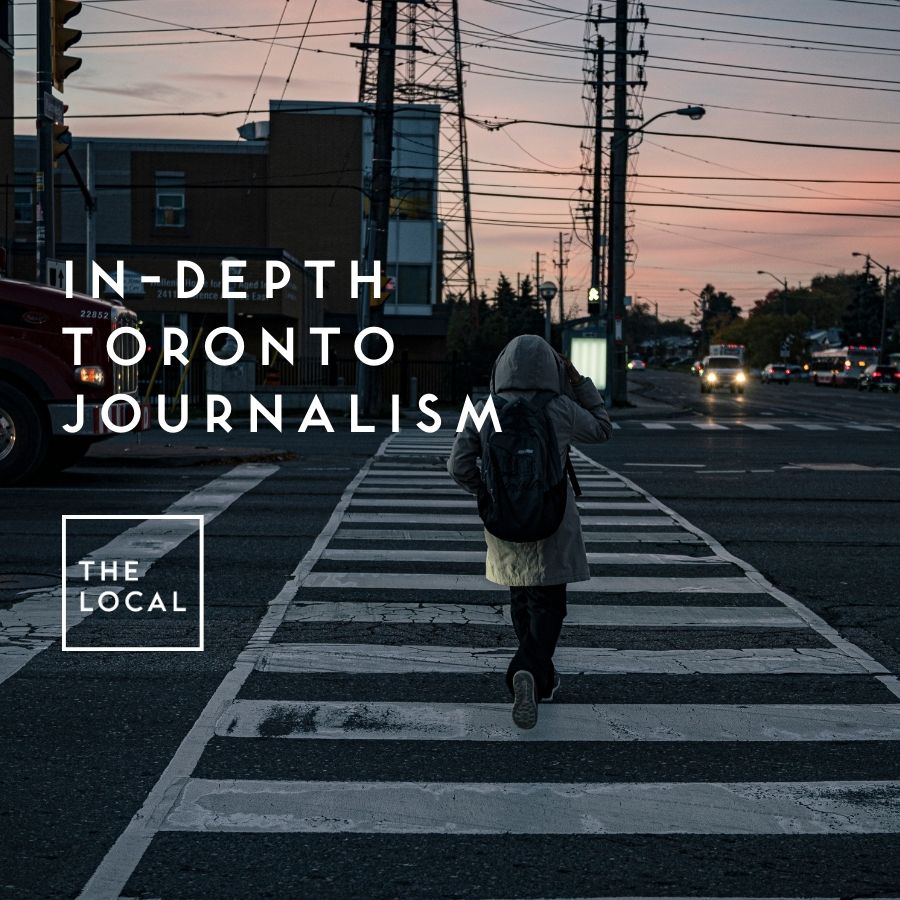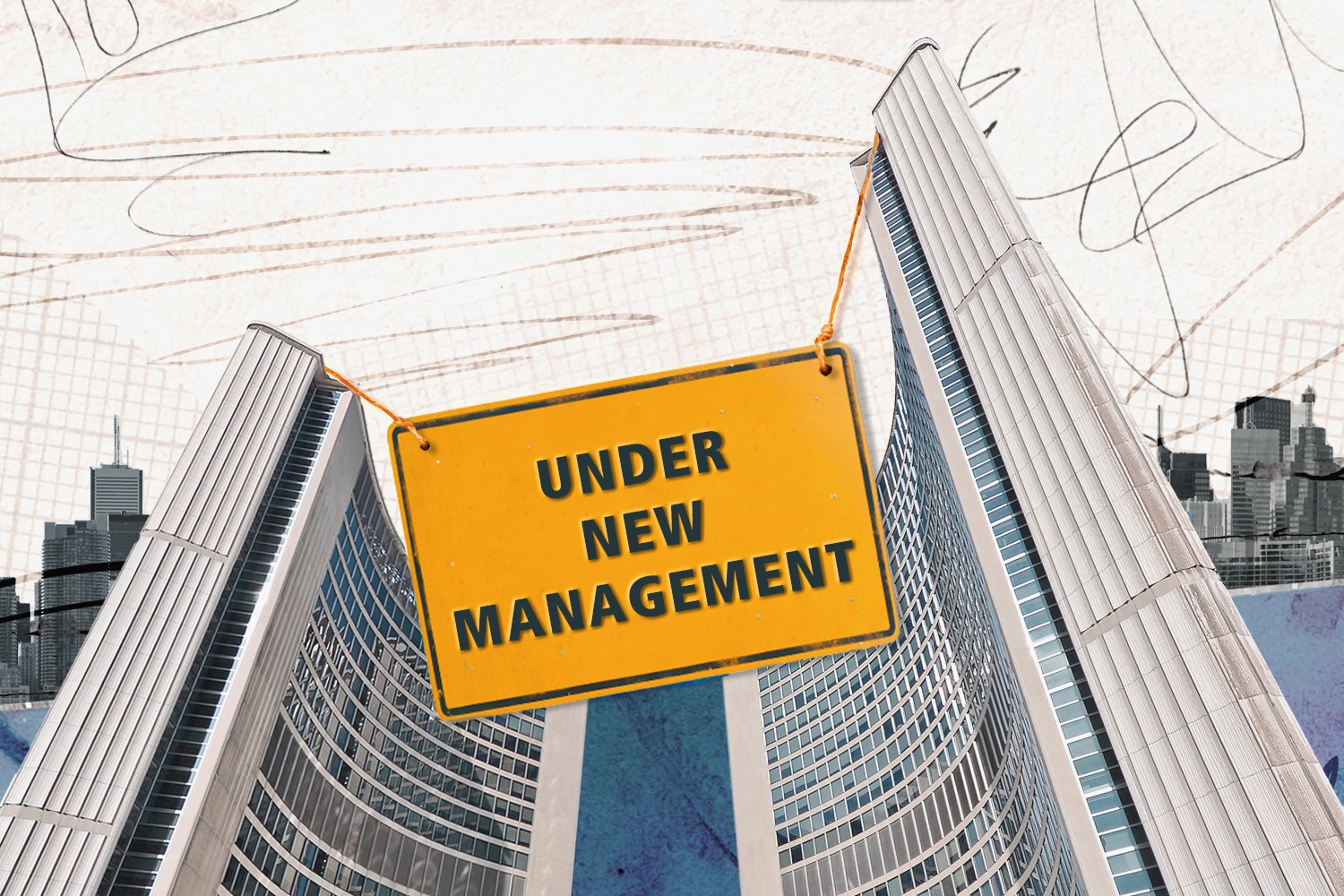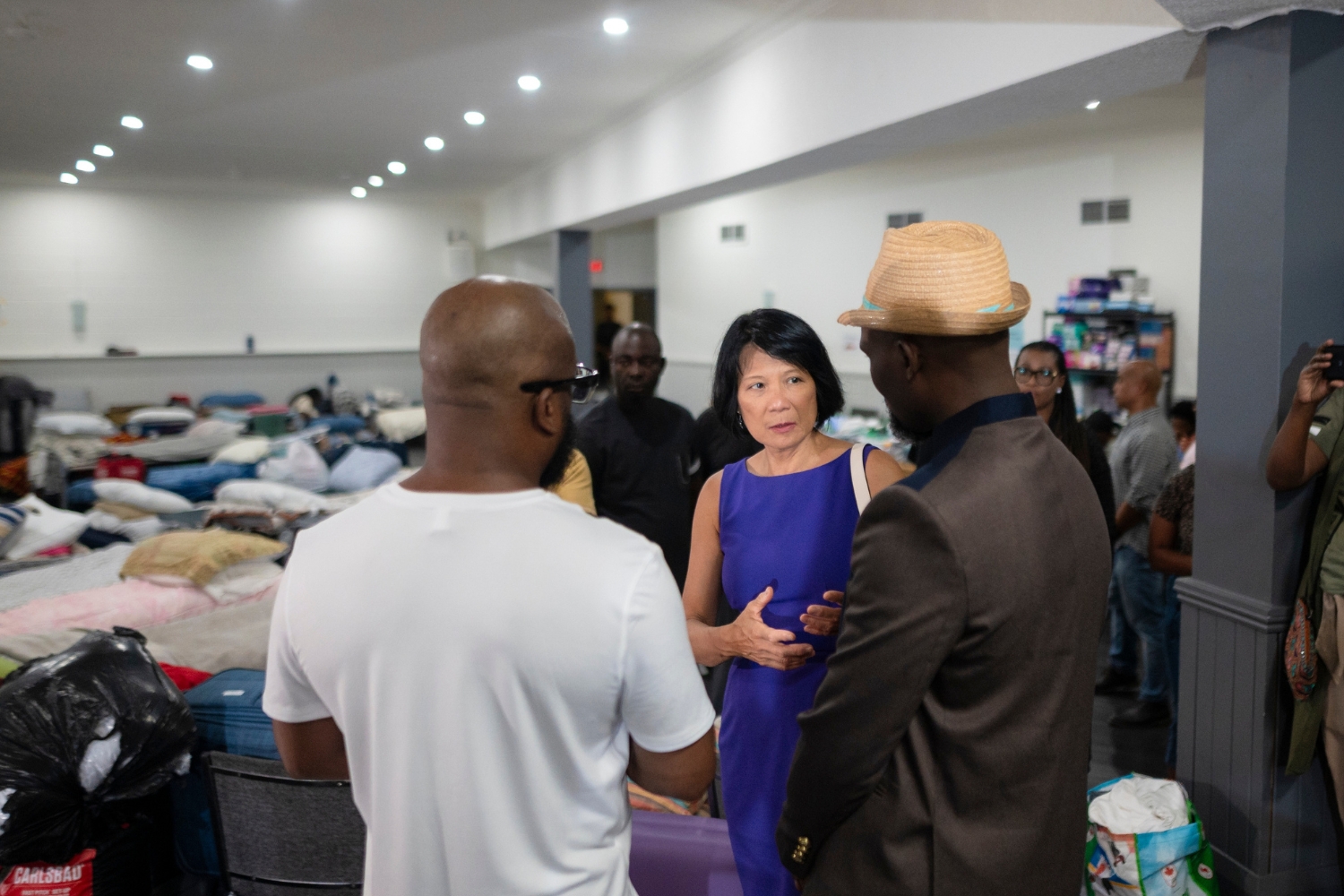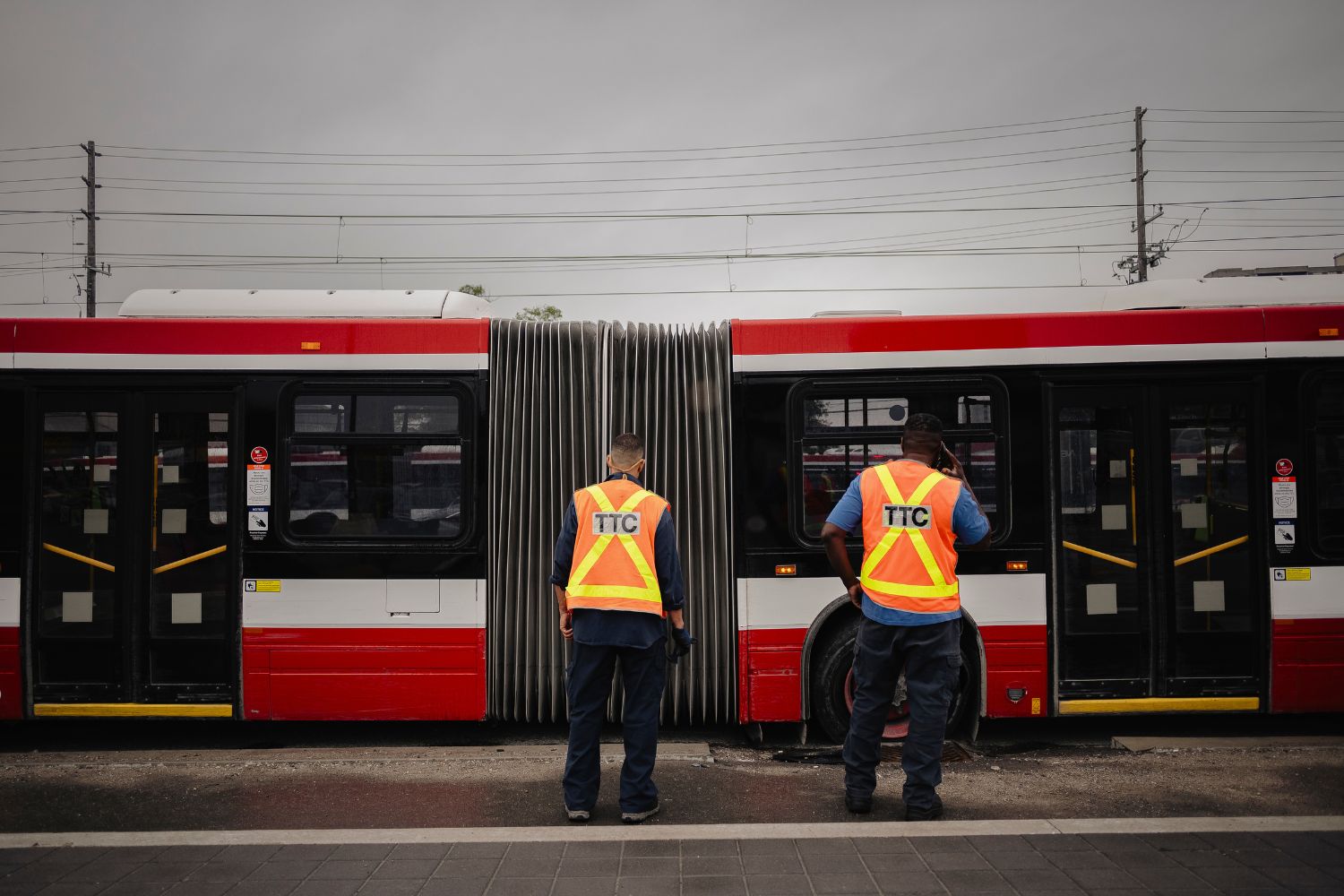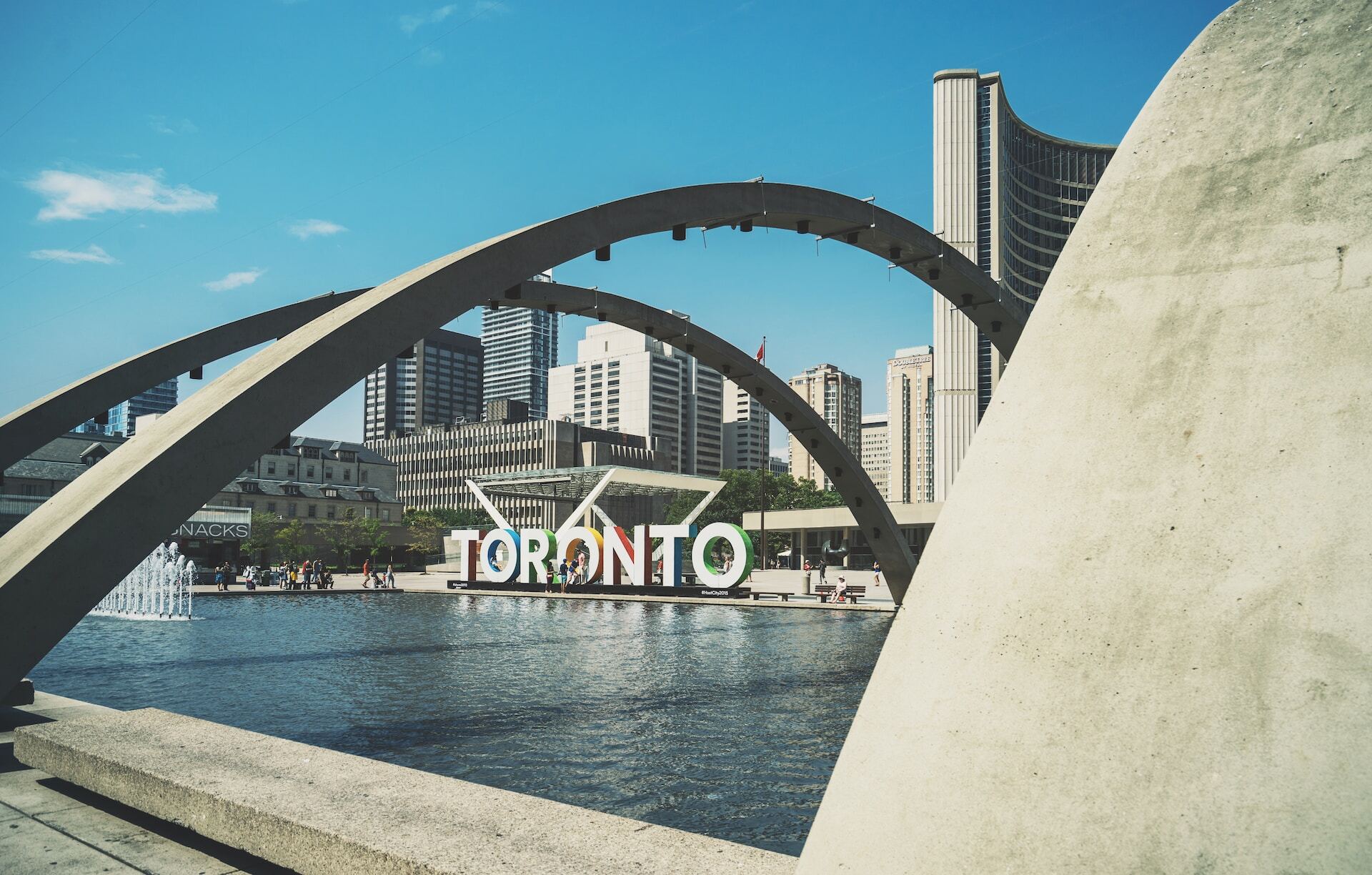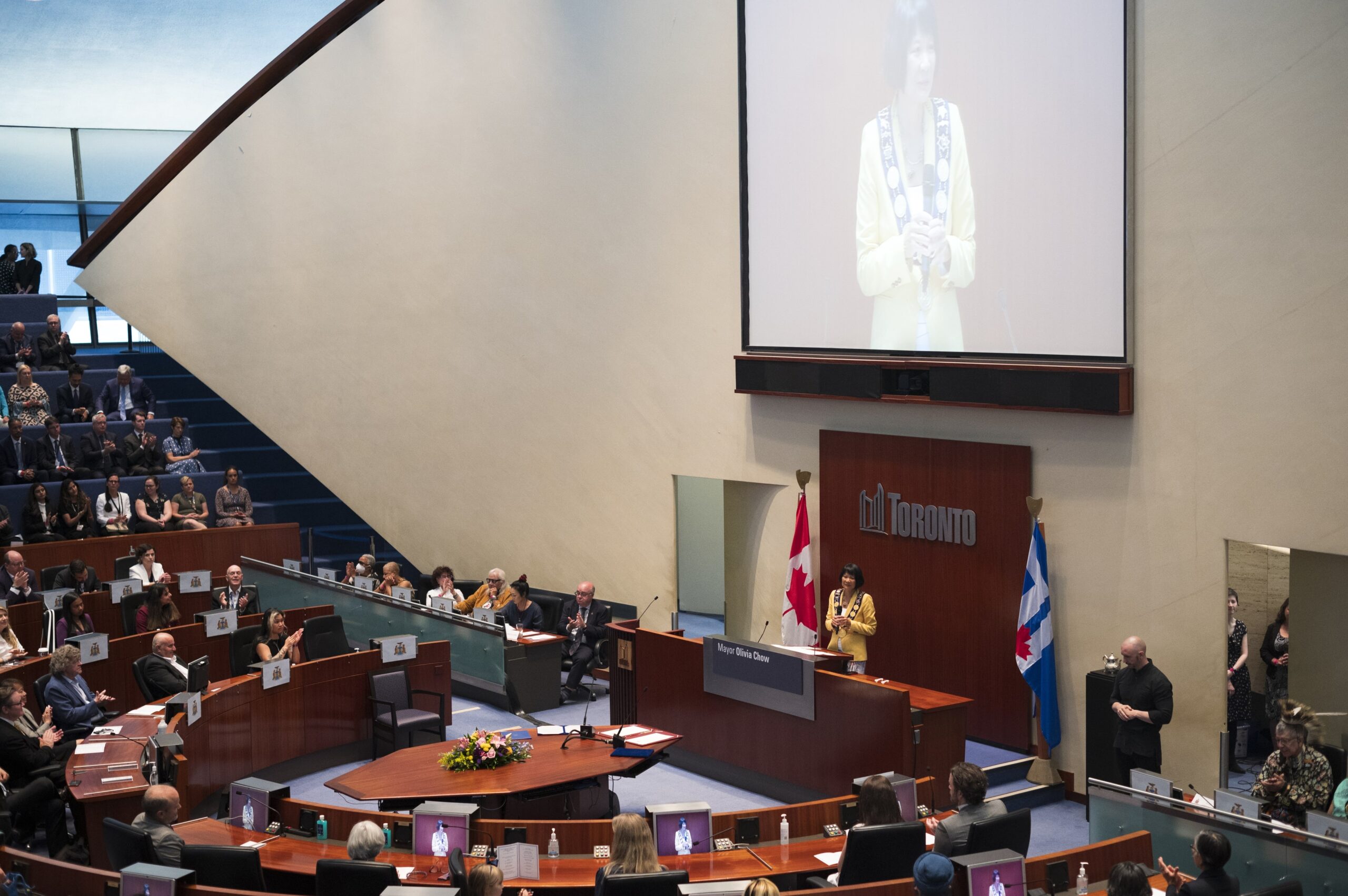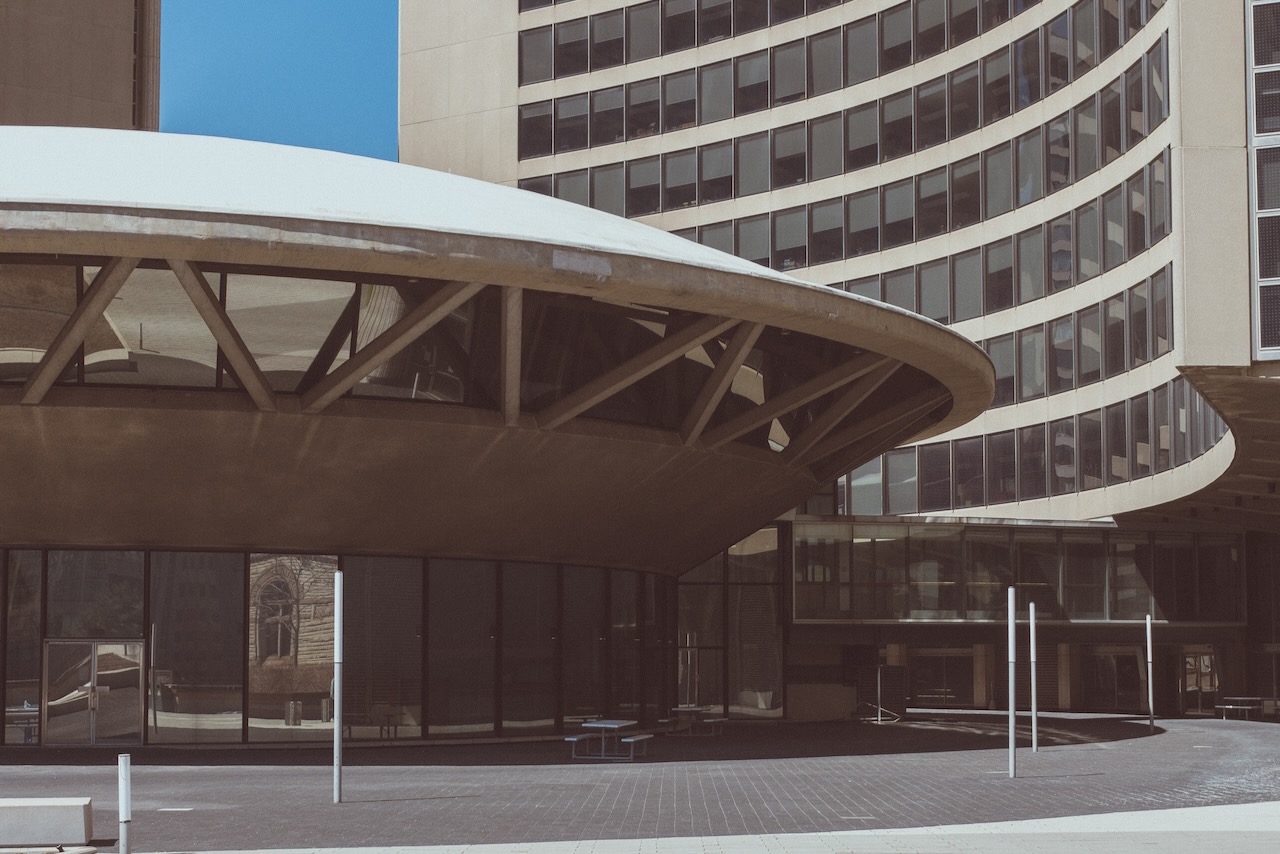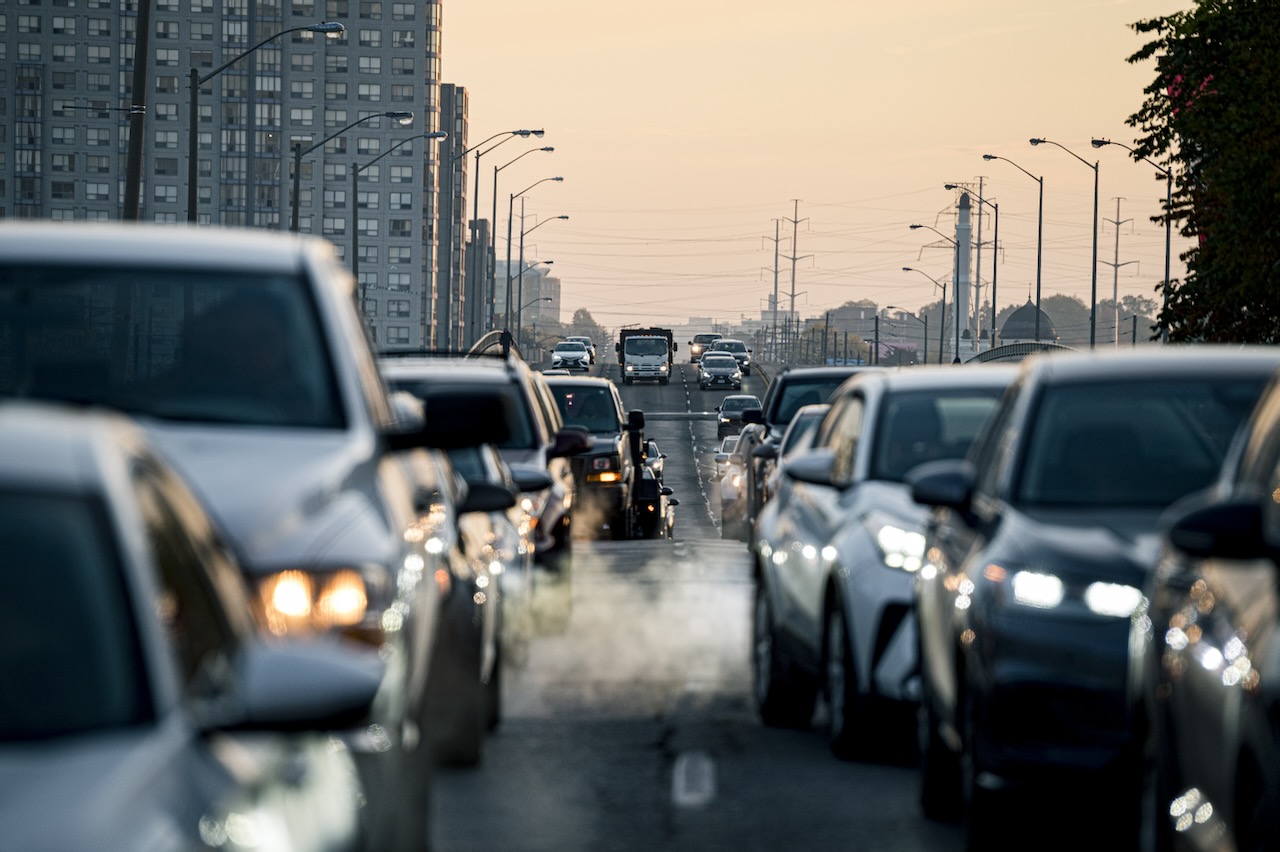
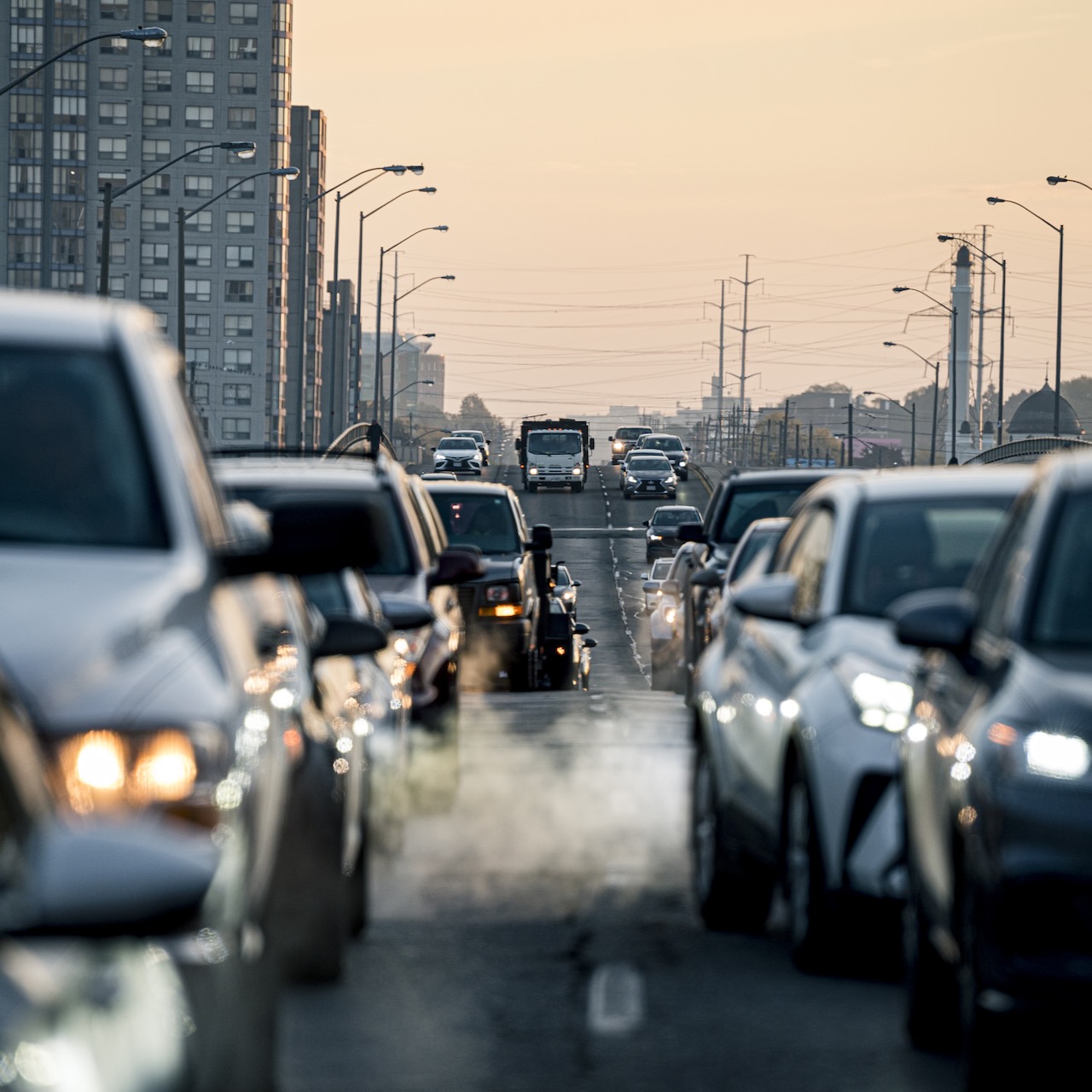
The first 100 days are crucial for a new mayor. In our new column, we’re following Olivia Chow’s first months in office—tracking her progress (or lack thereof) on election promises, who’s supporting and who’s impeding her, and everything else you need to know from City Hall.
On the afternoon of Wednesday, June 28, 2023—less than 48 hours after Olivia Chow was elected mayor—Toronto briefly had the worst air quality in the world. Outdoor activities were cancelled; a strange, dim red sun hung in orange haze. A few days later, the mayor-elect was meeting with public health and housing officials about the city’s response to air pollution.
Consider it a sign of things to come. The warming climate will bring increasingly extreme weather and unpredictable environmental hazards. Some, like air pollution from car traffic, have local causes that can be directly mitigated. Others are the knock-on effects of events elsewhere.
During her campaign, Chow promised nearly everything environmental advocates have asked for—albeit less fully costed and detailed than some other candidates. She promised to fully fund TransformTO, the city’s plan for becoming carbon-neutral by 2040. She also pledged to expand the city’s existing green retrofit programs while protecting renters from renovictions or rent hikes, increase funding for 24/7 warming and cooling spaces, and “develop a multi-phase plan” for adding maximum temperature limits in buildings. (This last one is a little cagey, but given the considerable obstacles to actually putting it into practice, I’m inclined to let it slide.)
Much of this Toronto can’t do alone; it requires co-operation and funding from other orders of government. During Chow’s first months, she will have to get funding commitments from the provincial and federal governments in time for the municipal budget. But this would also be an excellent time to prove she can deliver on smaller-scale changes to help Torontonians weather the rest of the summer.
How climate change stresses the system
According to an innovative 2019 study, within at most 30 years, Toronto’s climate will be more like Washington, D. C.’s. The implications for the city raise a lot of complicated questions. What does this mean for snow removal services? What tree species should we be planting? But, of course, one of the most pressing issues is the health effects of extreme heat.
Toronto’s most marginalized groups are the most at risk during heat waves—people who are chronically ill, have to work outside, don’t live in buildings with air conditioning, or lack access to parks, libraries, and other public places to stay cool. The risks are even greater for people who are unhoused and have only precarious access to public space, both indoors and outdoors. (The city’s Office of Emergency Management is better known for forcing vulnerable people out of parks than helping them stay there.)
In previous years, Toronto opened temporary cooling centres during heat warnings. However, since 2019 the city has instead directed people to existing spaces like wading pools, malls, and community centres—in effect offloading hot weather responses onto other city divisions and private spaces, regardless of how accessible or appropriate they are.
An increasingly extreme climate also means more intense rainfall, like the floods of July 2013 and May 2017. But even localized flooding can cause considerable disruption, property damage, and erosion. Severe storms put more pressure on Toronto’s water infrastructure and environment, requiring more expensive maintenance and repair.
Join the thousands of Torontonians who've signed up for our free newsletter and get award-winning local journalism delivered to your inbox.
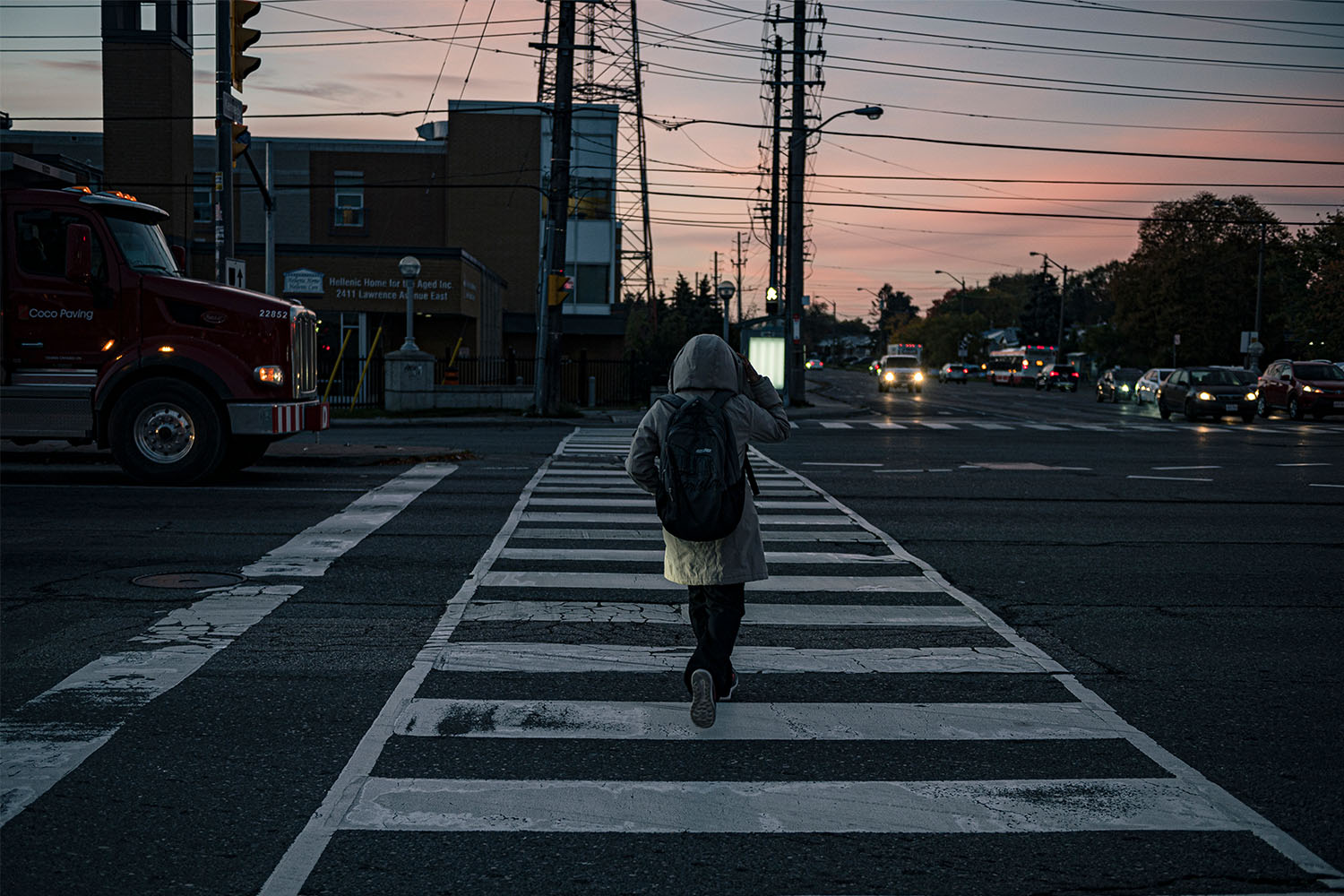
The city’s strategies
Over the past several years, Toronto has adopted ambitious plans to cut greenhouse gas emissions and adapt to climate change. However, putting those plans into practice has been a different matter.
In 2017, Council approved TransformTO, a plan to become a “low-carbon” city by 2050. (It will require transitioning away from gasoline and natural gas.) With funding from the Rockefeller Foundation’s 100 Resilient Cities project, the city also hired a Chief Resiliency Officer, Elliott Cappell. The newly established Resiliency Office would produce a strategy to help prepare the city for the kind of catastrophic events that climate change makes increasingly frequent.
But there was only two years’ worth of funding; in 2019, shortly after Cappell left, the 100RC project itself was closed down. The same year, Council voted to join city governments around the world in declaring a climate emergency.
The pandemic resulted in setbacks and, in 2021, funding cuts for TransformTO projects. Nevertheless, later that year Council voted to accelerate the plan to bring greenhouse gas emissions to net zero by 2040.
It’s a familiar pattern: Council is very good at setting goals that look good on paper, but not following through by funding programs or making large-scale, long-term changes.
“One of the biggest issues is that there is no real integrated plan right now for climate resilience, for protecting people from the impacts of climate change,” says Sarah Buchanan, campaigns director for the Toronto Environmental Alliance. “There’s a lot of different city departments that are doing really important work on some of the individual aspects of it—for example, the Environment & Climate Division, Toronto Public Health, the Office of Emergency Management—but not necessarily following an integrated plan to work together on things.”
What Chow can do, short-term and long-term
The biggest obstacle to addressing climate change and extreme weather is, predictably, money. TransformTO has been consistently underfunded, and the city’s dire financial situation will only exacerbate this.
“I’ll say that Olivia [Chow] has inherited a big to-do list,” Buchanan says. “One big front-of-mind thing is just finding money. There’s going to be some big discussions in the next few months on finding new sources of revenue, whether it’s from within the city’s jurisdiction or from other levels of government—finding the money to do a lot of these things that may have sat on the shelf or not been implemented.”
But, she adds, the next steps don’t have to be big or dramatic, and they don’t require expensive infrastructure—just improving what’s already here. It could even be “as simple as getting more water fountains working in parks,” increasing transit service, and “taking a hard look at…who has access to green space and cooling spaces in our city as well.”
It may feel as if Toronto is powerless against the changing climate; and a lot of the factors that contribute to it are out of our control. But we are not starting from scratch. If Chow can start implementing the recommendations and plans the city already has, Toronto’s next summer—or even the rest of this one—can become more livable for the people who need it most.
Other stuff
- The Scarborough RT is still shut down after a car derailed on Monday, July 24, injuring five people. For longtime SRT riders, a serious accident felt like only a matter of time. The TTC had planned to close the line for good in November, but with at least a week to go before they finish investigating the accident, to say nothing of how long it will take to make repairs, it’s dubious the line will re-open at all. In the meanwhile, “up to 70” shuttle buses are running; the actual number, which you can track here, may be considerably lower. The busway is not expected to be ready until the end of 2025. As ever, see Steve Munro’s analysis for technical details.
- Tenants in Weston and Thorncliffe Park are on rent strike, protesting steep above-guideline increases. It will be interesting to see if or how Chow responds, given her campaign promises to strengthen tenant protections.
What’s Next
August is typically City Council’s month off, with nothing scheduled but routine Bid Award and Committee of Adjustment meetings. However, next Thursday, August 10 will be eventful. In the morning, Striking Committee has a special meeting where they’ll recommend who should chair and sit on various committees—essentially, the City Council version of a Cabinet shuffle. It will give us a nice opportunity to look back at how committee makeup has helped set the Council agenda in recent years, what could have been, and what might happen soon.
Virtually all the major committees are currently led by Tory allies. Key committee assignments to watch will be Executive Committee, Budget Committee, Planning and Housing, and Infrastructure and Environment.
In the afternoon, Council will be meeting to discuss finding a new councillor for Ward 20, Scarborough Southwest. In May, Scarborough-Guildwood MPP Mitzie Hunter stepped down to run for mayor (unsuccessfully). In late July, Ward 20 councillor Gary Crawford stepped down to run for MPP (unsuccessfully). Now Council must decide whether to appoint a replacement or hold a by-election.
(The current federal MP for Scarborough Southwest is Bill Blair, who, having just been appointed defence minister, is unlikely to step down to run for councillor. Thank goodness; we could have had an Infinite By-Election Loop.)
